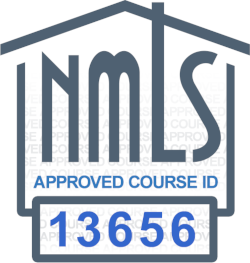https://www.onlineed.com/catalog/1335/Vermont-2-Hour-Mortgage-Pre-License-Elective
2 Hour VT SAFE: Vermont Mortgage Lending Laws
Mandatory Vermont state-specific component for DFR mortgage licensee applicants.
$59.00 | 2 Hours
+ $3.00 NMLS Credit Banking Fee
2 Hour VT SAFE: Vermont Mortgage Lending Laws
NMLS Course ID: 13656
NMLS Sponsor ID: 1400327
Credit Hours Provided: 2
Category: PE Elective
 This course is designed to prepare candidates to take the exam to become a state-licensed mortgage loan originator in Vermont under the Vermont Department of Financial Regulation (DFR). This 2-hour course covers Vermont specific rules and regulations as mandated by the DFR, and is required as part of the 20 hours of prelicensure education needed to become a Vermont-licensed mortgage loan originator.
This course is designed to prepare candidates to take the exam to become a state-licensed mortgage loan originator in Vermont under the Vermont Department of Financial Regulation (DFR). This 2-hour course covers Vermont specific rules and regulations as mandated by the DFR, and is required as part of the 20 hours of prelicensure education needed to become a Vermont-licensed mortgage loan originator.
Topics and Learning Objectives
This course consists of five modules and a final exam:
Sources of Vermont Mortgage Law (16 minutes)
MLO License Requirements (17 minutes)
Mortgage Brokers (10 minutes)
Required Accounts, Permitted Charges, and Documents (25 minutes)
Compliance with Vermont Laws (22 minutes)
Final Exam (10 minutes)
Total study time: 2 credit hours (100 minutes)
Module 1: Sources of Vermont Mortgage Law
What is the difference between state law and federal law? Federal laws are written by the United States congress. Federal laws govern the entire United States. State laws are also called state statutes or codes. They are written by your state legislators and apply only to your state. For example, Vermont Code and Statutes only apply to the state of Vermont.
In this module, we'll review important industry terms outlined in the Vermont Licensed Lenders Act, 8 V.S.A. § 2200 through § 2246
Module 2: MLO License Requirements
In this chapter we'll describe the licensing of mortgage loan originators. A mortgage loan originator is a natural person (i.e., an individual) who, for the expectation of compensation, takes a mortgage loan application for a borrower, or offers or negotiates the terms of a residential mortgage loan. Mortgage loan originators do not make mortgage loans, whether residential or commercial, but act as the intermediary between a loan applicant and a mortgage broker or lender.
Module 3: Mortgage Brokers
Mortgage loan originators are expected to follow all mortgage lending rules as provided under Vermont law. Not only is it important to understand the rules for mortgage loan originators, but it is also important to understand what a mortgage broker does and the applicable rules for brokers.
In this module, we will first cover the requirements to become a mortgage broker. We will then take a look at when an individual may act as a mortgage loan originator under a mortgage broker license. Finally, we will learn about certain mortgage lending rules and rules for loans.
Module 4: Required Accounts, Permitted Charges, and Documents
In this module we'll cover some of the disclosures, agreements, and accounting rules that Vermont licensees are required to comply with.
Module 5: Compliance with Vermont Laws
Certain acts and practices are prohibited by law. There are also protections put in place to protect consumers. In this module, we will divide topics into two parts. The first part will first cover a summary of prohibited acts for mortgage brokers and mortgage loan originators. In the second part, we will learn about the protections that are put into place by Vermont and federal law for consumers.
NMLS ID Required
You must have an NMLS ID to receive credit for this course. You will need this number before you begin the course.
If you already have an NMLS ID, but don't remember what it is:
- Login into NMLS,
- Click on the Composite View tab, then
- Click View Individual on the sub-header row.
- The number that appears in parentheses after your name is your NMLS ID number.
If you do not have an NMLS ID and need to obtain one, use the instructions available in the NMLS Resource Center
This course will remain available to students for 365 days after enrollment.
Learn More
Key Features
Online Course
Online Audio
PDF & EPUB eBook
Printable Certificate
Package Summary
| Price: |
$59.00 (USD)
+ $3.00 NMLS Credit Banking Fee |
|---|---|
| Credit Hours: | 2 |
| State: | Vermont |
| Category: | Vocational Training > Mortgage > License Training > Vermont > PE Elective |
| Purpose: | Mandatory Vermont state-specific component for DFR mortgage licensee applicants |
Course Provider
OnlineEd
14355 SW ALLEN BLVD STE 240,
Portland, OR 97223
(503) 670-9278
mail@onlineed.com
NMLS Course Provider ID: 1400327
Enrollment Agreement
Purchase of this package requires that you read and acknowledge an Enrollment Agreement before receiving credit for any courses contained in this package. Please review the following:
Our Mission Statement
To provide superior distance education that exceeds industry standards and expectations in course content and delivery methods to those who seek to enter a new profession and those engaged in a profession.
Vermont Education Guidelines
Get detailed information on the education requirements for topics, credit hours, and licensing.




